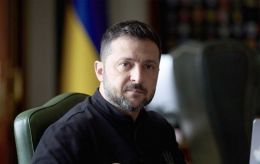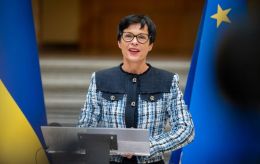Big shake-up: What Trump's victory means for Ukraine, and can he really stop the war?
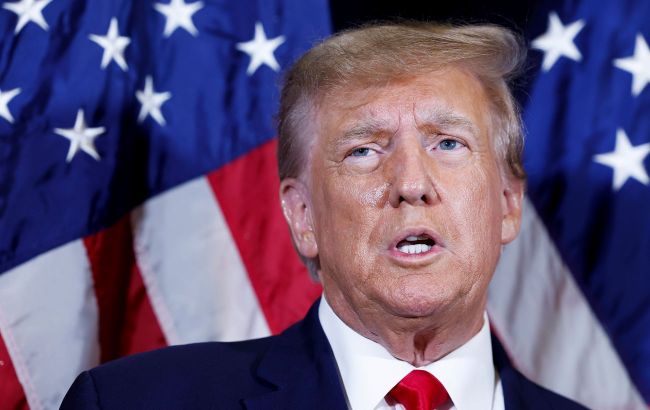 Donald Trump will become the next president of the United States (Getty Images photo)
Donald Trump will become the next president of the United States (Getty Images photo)
Donald Trump has won the US presidential election. He will officially take over after the inauguration on January 20, 2025, but already, Ukraine and the world are closely watching what he says and what actions he might take. What Trump’s victory means for Ukraine and whether he can stop the war – read in the material by RBC-Ukraine.
Contents:
- Trump wins: Why the US President's role is important for Ukraine
- What Trump’s victory means
- Can Trump stop the war
Trump wins: Why the US President's role is important for Ukraine
Preliminary results show Donald Trump leading his Democratic opponent Kamala Harris by 5 million votes. More importantly, he has secured the support of 277 electors, which is enough to become the president.
This victory marks the Republican’s return to the White House nearly four years after his departure. Speaking to supporters in Florida, he has already declared himself the 47th elected president of the United States.
"This is a political victory that our country has never seen before… I will not rest until we have delivered the strong, safe, and prosperous America that our children deserve and that you deserve. This will truly be the golden age of America," he stated.
The US president possesses the broadest powers compared to leaders of other Western democracies. Unlike most of these countries, there is no prime minister in the US and the president is in charge of the entire administration.
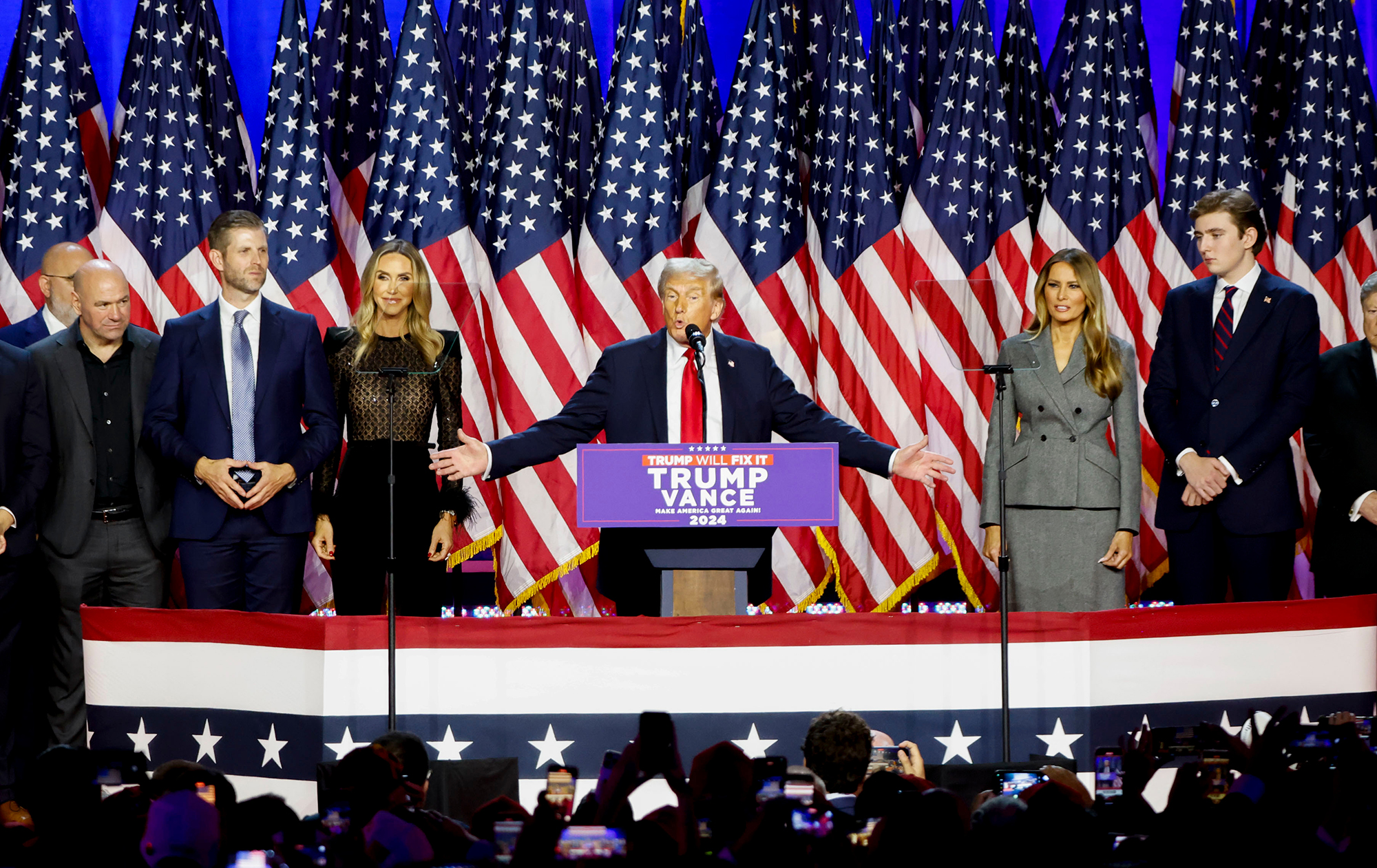
Donald Trump is already celebrating his election victory (photo by Getty Images)
The president is head of the executive branch, commander-in-chief of the armed forces, holds veto power over bills passed by Congress. The president also determines foreign policy, which is especially important for Ukraine, as the United States is its main partner, military and financial donor.
Ukrainian President Volodymyr Zelenskyy called Trump’s victory impressive, referencing their September meeting in New York where they discussed strategic partnership, a victory plan, and ending Russian aggression.
The Ukrainian president said he appreciated President Trump's commitment to a “peace through strength” approach to global affairs. He believes that this principle will bring a just peace to Ukraine. Zelenskyy added that he hopes to implement it together and that he counts on bipartisan support from the United States.
Other leaders also mentioned Ukraine in their congratulations. Turkish President Recep Tayyip Erdoğan expressed hope that Trump’s administration will resolve regional and global crises, especially the Palestinian issue and the Russia-Ukraine war.
Hungarian Prime Minister Viktor Orbán hailed the victory as much needed by the world, while his foreign minister, Peter Szijjártó, remarked that after nearly a thousand days of war in Ukraine, the chances for peace are higher than ever.
“I'm not going to start wars, I'm going to stop wars. We had no wars, for four years we had no wars. Except we defeated ISIS," Trump declared.
However, the president-elect is known for his controversial statements about Ukraine, leaving more questions than answers about his intentions.
What Trump’s victory means
During his presidential campaign, Donald Trump criticized the Biden-Harris administration for increasing financial and military aid to Ukraine. He expressed dissatisfaction with the US spending billions instead of seeking to end the war.
In campaign rallies, Trump stated that Ukraine is devastated beyond repair and claimed that any potential peace deal over the years of the war would have been better than the current situation. He referred to President Zelenskyy as "the greatest salesman in history," suggesting that after every visit to the US, Zelenskyy would leave with $60 billion.
From October 2023 to April 2024, Republicans in the House of Representatives blocked a major aid package for Ukraine. Although the Ukrainian government emphasized bipartisan support in Washington, the prospect of Trump’s victory was a significant concern for Kyiv, according to Politico.
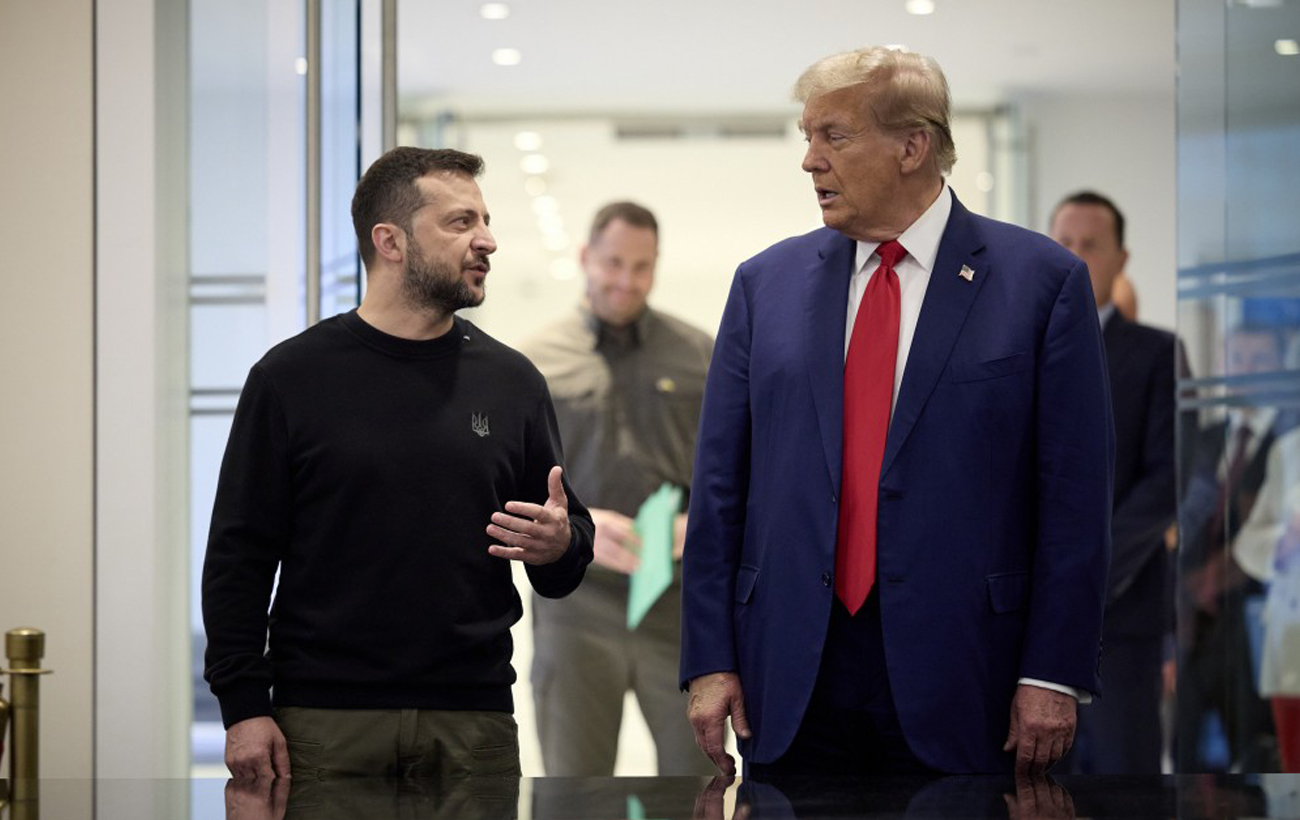
Donald Trump promised Volodymyr Zelenskyy to work on a good deal (photo by president.gov.ua)
Trump's unpredictability leaves many uncertain about what to expect from his second term. His return to the White House signals a major shake-up, with potentially the most dramatic impact on Ukraine.
Trump won at a critical time. Moscow is advancing in the Donbas, which Vladimir Putin aims to capture in full. Given Trump’s previous statements, Ukraine might face a sharp reduction in US support, a change that could be decisive on the battlefield, according to CNN.
Volodymyr Fesenko, head of the Penta Center for Applied Political Studies, cautions against jumping to conclusions, suggesting that Trump's victory might not be the worst scenario.
"It would have been much worse if the US had plunged into a political crisis," he told RBC-Ukraine. "This is a great risk for the whole world, for international security, and provides opportunities for Putin, China, and others like Iran and North Korea. We could have lost US aid for an indefinite period."
Another challenging outcome would have been Kamala Harris winning, especially given that Republicans now hold a Senate majority and are close to control in the House of Representatives.
"Last year's story would repeat itself. And again, we could lose aid for a while," Fesenko explained.
Regarding support, it’s likely that Trump will push for a new approach.
"Financial and budgetary assistance will probably end, reflecting not only Trump’s position but also that of many Republicans. Trump controls spending and there will be no more free aid. Military support will continue, but only as loans or under lend-lease terms. Financial matters will be managed by the new Congress, and while it may take time, we might see fresh ideas and proposals by early December,” Fesenko added.
This topic will become a lever of pressure. "If we don't agree to Trump's terms, military aid might be cut off. So, we’ll likely agree to negotiations, and there should be separate tactics for the United States and Russia.”," he noted.
Can Trump stop the war
Right now, there is no clear answer to this question. Donald Trump has repeatedly praised Putin and criticized Zelenskyy, with whom he has a complicated history. He also claimed that the Russian invasion would not have happened if he were president and vowed to stop the war within 24 hours of taking office.
During the debates, Trump refused to answer whether he wanted Ukraine to win. He hinted that Ukraine might need to give a little to Moscow. "If they made a bad deal, it would have been much better. They would have given up a little a bit and everybody would be living," he said.
Shortly afterward, Trump met with Zelenskyy and promised to work on a "fair deal for everybody." "I think long before I would take the presidency – it’s January 20 – but long before that, I think that we can work out something that’s good for both sides. It’s time," he said.
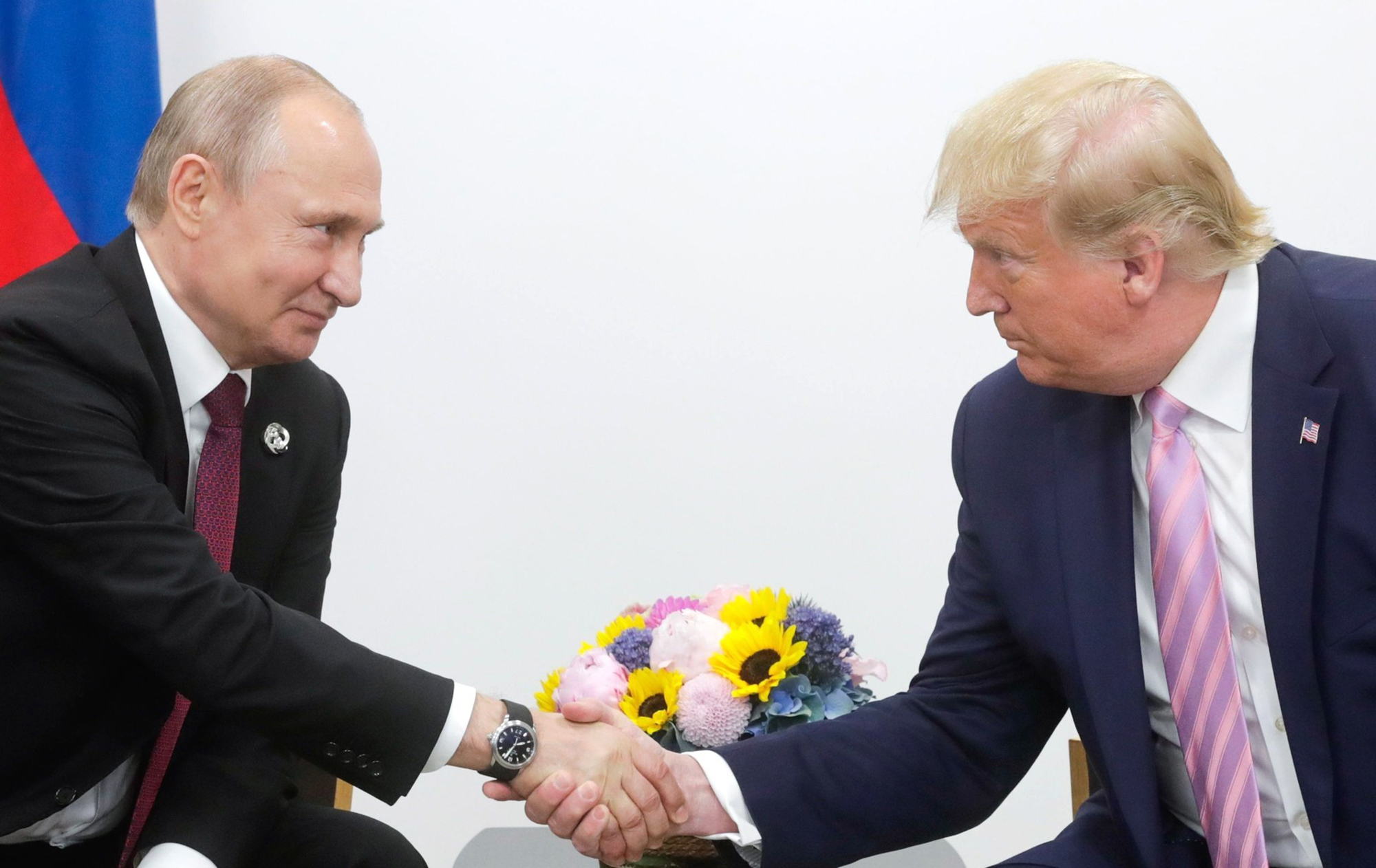
Trump has repeatedly praised Vladimir Putin, but it is unclear whether he will agree to talks (photo by Getty Images)
Zelenskyy presented him with a victory plan and said that he was open to negotiations, but they must be conducted from a position of strength. Recently, he stated that he had not heard Trump express a desire to reduce support for Ukraine but acknowledged that the next US president could either strengthen or weaken it.
Tim Willasey-Wilsey, senior associate fellow at the Royal United Services Institute in London, suggests that Trump could call Putin as early as November 6. "Any such call would set expectations of a negotiated settlement, with discussions possibly beginning in the early months of 2025,” he said.
Such a call is certainly possible, but it won't resolve the issue of negotiations, explains Volodymyr Fesenko. To begin negotiations, moderators from Trump, Putin, and Zelenskyy need to be appointed.
"At this stage, negotiations could only be informal. The first step would be agreeing on the format, location, and agenda. Putin may agree, but will propose demands unacceptable to Ukraine. Negotiations might happen, but they will be very complicated, and I don't expect quick results," said the political analyst.
It is still unclear what Trump's specific plan involves. According to the Financial Times, it might be a rethinking of the Minsk agreements, with enforcement mechanisms overseen by European troops. There could also be a frozen conflict, the creation of demilitarized zones, and Ukraine's refusal to join NATO until Putin leaves the stage. To force Putin into negotiations, the US might threaten to collapse Russia's economy with low oil and gas prices.
It is highly likely that Trump will initiate negotiations for a ceasefire along the front line, possibly with a refusal of NATO membership, according to Fesenko.
"But these won't be negotiations on Russia's terms. Putin wants more one-sided concessions from Ukraine. This wouldn't be very beneficial for Trump, as it would be perceived not only as a defeat for Ukraine but also as a defeat for the US. He would prefer a conditional compromise. Whether Putin will agree is unknown. As promised, Trump could initiate talks before taking office, but there will be no quick results," said the political scientist.
Regarding pressure on Russia, if it refuses the US proposals, it is likely that the US will indeed increase military aid to Ukraine.
"These are the only things we can predict at this point. I think with Trump, we'll experience a roller coaster, a contrasting shower - it will be cold and hot. It certainly won’t be boring," concluded the expert.
Sources: statements by Donald Trump, President of Ukraine Volodymyr Zelenskyy, CNN, CNBC, Financial Times, Politico, and comments by Volodymyr Fesenko, head of the Penta Center for Applied Political Studies.
